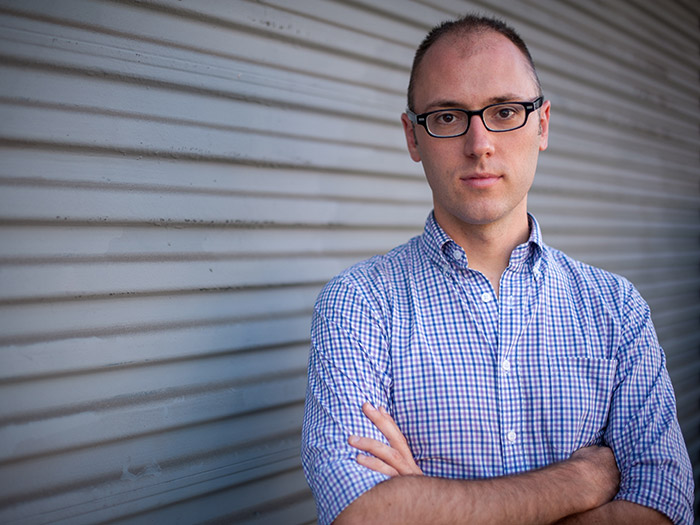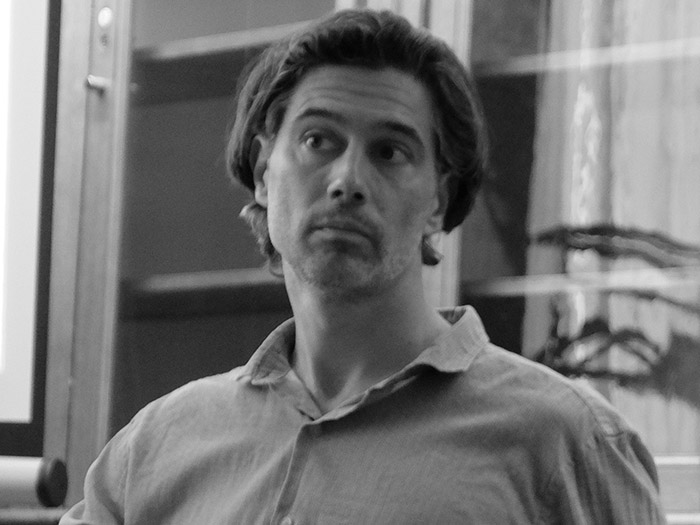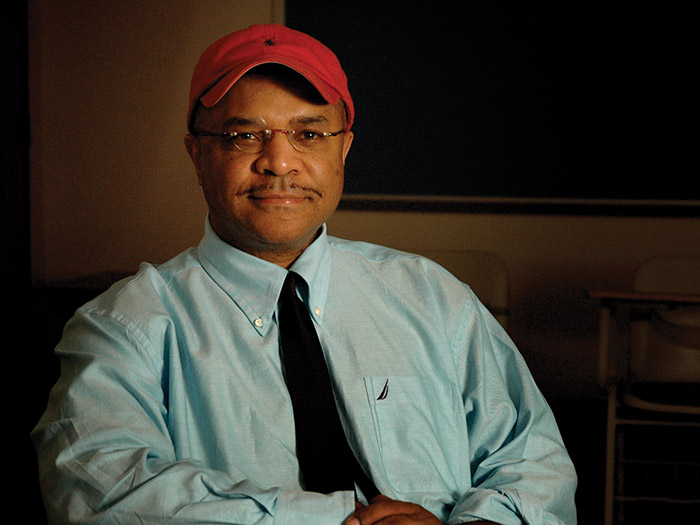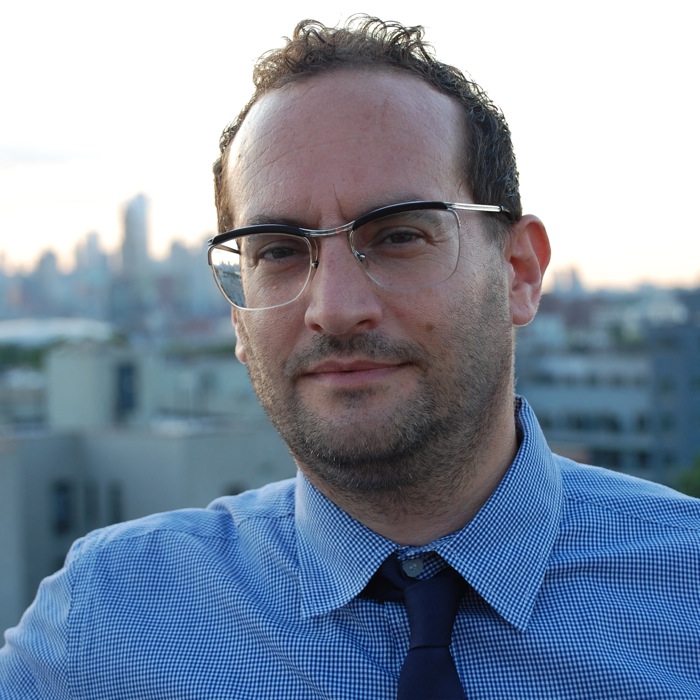Thinking Privilege
2016 Mellon Symposium
Organized by Roy Ben-Shai
Friday, April 8, 2016

This symposium is an occasion to reflect about the meaning of privilege, and to problematize the relationship between privilege and thinking. Among the questions we will discuss are, what is privilege? What is its experiential, moral, epistemological, political, and philosophical significance? And how does privilege affect and limit the contents and possibilities of critical thought?
Working within the traditions of critical theory, feminism, critical race theory, and philosophy more generally, the aim of the symposium Thinking Privilege is to enable an open discussion and debate concerning the social, institutional, and material conditions that underlie scholarly activities, and the role that scholars have in reproducing, de-constructing, or problematizing privilege. The symposium brings together philosophers and political theorists who have been thinking and writing about privilege and its impacts: Amy Allen (Penn State University), Andrew Dilts (Loyola Marymount University), Gabriel Rockhill (Villanova University), Shannon Sullivan (UNC Charlotte), George Yancy (Emory University), and Rocio Zambrana (University of Oregon).
Sponsored by the Hurford Center for the Arts and Humanities.
Schedule
All events in Stokes 102 unless noted otherwise. View Campus Map
Friday, April 8, 2016
8:30—9 a.m.
Continental Breakfast
9—9:30 a.m.
Introductory Remarks
Roy Ben-Shai
9:30—11 a.m.
1st Session
"The Empty Knapsack: Doing Philosophy in Black"
George Yancy (Emory University)
"Five Hypotheses on Privilege and Violence"
Gabriel Rockhill (Villanova University)
Moderator: Paulina Ochoa Espejo (Haverford College)
11:10—11:15 a.m.
Coffee Break
11:15 a.m.—12:45 p.m.
2nd Session
“The Critique of Privilege and the Privilege of Critique”
Amy Allen (Penn State University)
"Double Binds: Reflections on Privilege and the Practice of Philosophy"
Rocio Zambrana (University of Oregon)
Moderator: Jaclyn Pryor (Haverford College)
12:45—2 p.m.
Lunch Buffet
CPGC Café, Stokes 104
2—3:30 p.m.
3rd Session
“Privilege: The Myth of Merit, and Abolition-Democracy”
Andrew Dilts (Loyola Marymount University)
"Rethinking White Privilege"
Shannon Sullivan (University of North Carolina at Charlotte)
Moderator: Jill Stauffer (Haverford College)
3:30—3:45 p.m.
Coffee Break
3:45—5:15 p.m.
Roundtable for All Panelists
Moderator: Roy Ben-Shai
5:15—5:30 p.m.
Concluding Words
Roy Ben-Shai
Speakers

Amy Allen
Amy Allen is Liberal Arts Research Professor of Philosophy and Women's, Gender, and Sexuality Studies at the Pennsylvania State University. She is the author of The End of Progress: Decolonizing the Normative Foundations of Critical Theory (Columbia University Press, 2016), The Politics of Our Selves: Power, Autonomy, and Gender in Contemporary Critical Theory (Columbia University Press, 2008), and The Power of Feminist Theory: Domination, Resistance, Solidarity (Westview, 1999). She is Co-Editor in Chief of the journal Constellations: An International Journal of Critical and Democratic Theory and general editor of the Columbia University Press series New Directions in Critical Theory. Her current research project is on critical theory and psychoanalysis.

Andrew Dilts
Andrew Dilts is Assistant Professor of Political Theory in the Department of Political Science at Loyola Marymount University. He is a political theorist whose work focuses broadly on the history of political thought, and in particular, the discursive relationships between political membership, subjectivity, sovereignty, and punishment. He is especially interested in the connections between penal policy, race, and “identity” in the United States. He is the author of Punishment and Inclusion: Race, Membership, and the Limits of American Liberalism (Fordham University Press, 2014). He is co-editor (with Perry Zurn of Hampshire College) of Active Intolerance: Foucault, the Prisons Information Group, and the Future of Abolition (Palgrave 2015). Currently, Dilts is at work on a book-length study of Michel Foucault’s thought in relation to neoliberal economic theories of subjectivity and race, drawing on Foucault’s lectures at the Collège de France, his late work on the care of the self, and the theory of human capital developed by “Chicago-School” economists. He is co-editor (with Natalie Cisneros of Seattle University) of a special project for Radical Philosophy Review called “Political Theory and Philosophy in a Time of Mass Incarceration.” He has published articles in Political Theory, Foucault Studies, New Political Science, PhiloSOPHIA, and The Carceral Notebooks. He is also a founding member of Abolition: A Journal of Insurgent Politics.

Gabriel Rockhill
Gabriel Rockhill is a philosopher, cultural critic and political theorist. He is Associate Professor of Philosophy at Villanova University and Founding Director of the Atelier de Théorie Critique at the Sorbonne. He is the author most notably of Interventions in Contemporary Thought: History, Politics, Aesthetics (2016), Radical History & the Politics of Art (2014) and Logique de l’histoire: Pour une analytique des pratiques philosophiques (2010). He co-edited and co-authored Politics of Culture and the Spirit of Critique: Dialogues (2011), and he co-edited and contributed to Jacques Rancière: History, Politics, Aesthetics (2009) and Technologies de contrôle dans la mondialisation (2009). In addition to his scholarly work, he has been actively engaged in extra-academic activities in the art and activist worlds, as well as a regular contributor to public intellectual debate.

Shannon Sullivan
Shannon Sullivan is Chair of Philosophy and Professor of Philosophy and Health Psychology at UNC Charlotte. She works in the intersections of continental philosophy,feminist philosophy, critical philosophy of race, and American pragmatism. She has published numerous articles and is the author of four books: Living Across and Through Skins: Transactional Bodies, Pragmatism, and Feminism (2001), Revealing Whiteness: The Unconscious Habits of Racial Privilege (2006), Good White People: The Problem with Middle-Class White Anti-Racism (2014), and The Physiology of Sexist and Racist Oppression (2015). Good White People recently was named a 2014 CHOICE Outstanding Academic Title and a Ms. Magazine Must-Read Feminist Book of 2014. She also is co-editor of four books, including Race and Epistemologies of Ignorance (2007).

George Yancy
George Yancy is Professor of Philosophy at Emory University. He received his BA in Philosophy from the University of Pittsburgh, his first Master’s Degree from Yale University in Philosophy, and his second Master's in Africana Studies from NYU, where he received a distinguished Fellowship. His Ph.D. is in Philosophy from Duquesne University. He has authored, edited, or co-edited 17 books. His first authored book received an Honorable Mention from the Gustavus Myers Center for the Study of Bigotry and Human Rights and three of his edited books have received CHOICE Outstanding Academic Titles. His series of interviews on race that appears in The Stone, New York Times, is well-known nationally and internationally. Yancy’s interviews are scheduled to appear in a single volume under contract with Oxford University Press (2016). Yancy’s article, “Walking While Black in the White Gaze” (New York Times) won the American Philosophical Association Committee on Public Philosophy's Op-Ed Contest in 2014. When at Duquesne, he twice won awards for Excellence in Scholarship. His most recent edited book is entitled, White Self-Criticality, Beyond Anti-Racism: How Does it Feel to be a White Problem? (2015). He is currently working on three edited books and two authored books. Yancy is also "Philosophy of Race" Book Series Editor at Lexington Books.

Rocío Zambrana
Rocío Zambrana is Assistant Professor of Philosophy at the University of Oregon. Her work examines conceptions of critique in Kant and German Idealism (especially Hegel), Marx and Frankfurt School Critical Theory, and Decolonial Thought. She is the author of Hegel’s Theory of Intelligibility (University of Chicago Press, 2015), as well as articles on Hegel, Kant, and Critical Theory. She earned her Ph.D. in Philosophy from the New School for Social Research where her thesis, The Logic of Critique: Hegel, Honneth, and Dialectial Reversibility, won the Hans Jonas Award in Philosophy.
Organizer

Roy Ben-Shai
Roy Ben-Shai is a Mellon Postdoctoral Fellow at Haverford College’s Hurford Center for the Arts and Humanities and Visiting Assistant Professor of Peace, Justice, and Human Rights. He earned his PhD in philosophy from the New School for Social Research in New York. His dissertation, a philosophical study of Holocaust survivor and essayist Jean Améry, won the Hans Jonas Memorial Award for best dissertation in philosophy, and he is now preparing it for publication. Ben-Shai’s current research is a historical study of shifting approaches to pathos and pathology in the philosophical tradition. This research aims to revaluate the significance of passive experiences for addressing contemporary debates in morality and politics, in particular concerning the role of past atrocities in forming and informing our future. Ben-Shai's core argument is that the widespread social imperative to reconcile with the past and overcome the effects of victimization follows from a deeply ingrained privileging of agency and health over pathos and passivity. This privileging, in many cases, engenders more damage and violence than it does good.
Ben-Shai has taught philosophy at universities in Iceland, Mexico, and the United States. He has published articles in The European Legacy and Telos and book chapters in Europe in the Eyes of Survivors of the Holocaust (2014), On Jean Améry: Philosophy of the Catastrophe (2011), and Metacide: In Pursuit of Excellence (2010). His most recent publication is a co-edited volume of essays titled The Politics of Nihilism: From the Nineteenth Century to Contemporary Israel, forthcoming from Bloomsbury Academic Press.